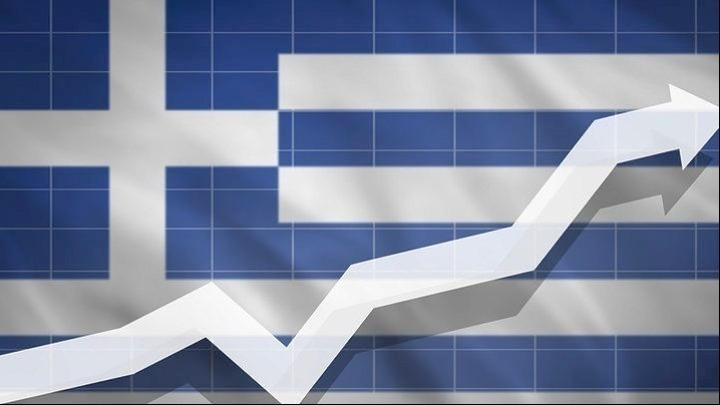Economic growth in Greece will exceed the EU average in 2022, but the inflation rate will remain high, the European Commission said in its summer 2022 Economic Forecast report released on Thursday.
More specifically, the report said that Greece kept its momentum in the first quarter of 2022, with real GDP growing by 2.3% q-o-q. Solid consumer spending was supported by positive developments in the labour market, and investment notably picked up. Net exports shrank, on the back of the slowdown in Greece’s main trade partners as well as persisting global supply chain disruptions.
Growth in the first quarter outperformed previous estimates, but the full impact of higher inflation and the resulting squeeze of real disposable incomes is expected to materialise later in the year. In addition to the persistence of high inflation, fading dynamics in job creation, notably due to weaker output growth in sectors affected by high input costs, are expected to act as a drag on household spending in the following quarters.
Growth in 2022 is forecast to be also supported by the impetus from the deployment of the RRP. High-frequency indicators confirm the expected solid outlook for tourism in 2022, and remain in line with the projections of a full return to pre-pandemic levels by 2023. Overall, real GDP is forecast to grow by 4.0% in 2022 and to slow down to 2.4% in 2023.
Going forward, increased uncertainty is expected to further ease the demand for new jobs, and coupled with the still high inflation rate, is expected to weaken growth in 2023. In addition, weaker growth prospects of the economy, as well as tighter lending conditions, are expected to slow down private investment, despite the RRF impetus. Goods exports are set to decelerate compared to the previous forecast given the less supportive external environment.
Consumer price inflation continues to increase, driven primarily by the surge in international energy and food prices. The pass-through to the remaining components of the consumption basket is expected to keep inflation high for the entire forecast horizon. Headline inflation is projected to reach 8.9% in 2022 and 3.5% in 2023.
Risks to the forecast have increased. On the downside, they are linked to the tourism sector in light of the uncertain spending power of incoming tourists and increased geopolitical tensions in the region. On the upside, potentially more positive labour market dynamics could provide stronger-than-assumed support to household income and thereby to private consumption going forward.
SOURCE; ANA-MPA









